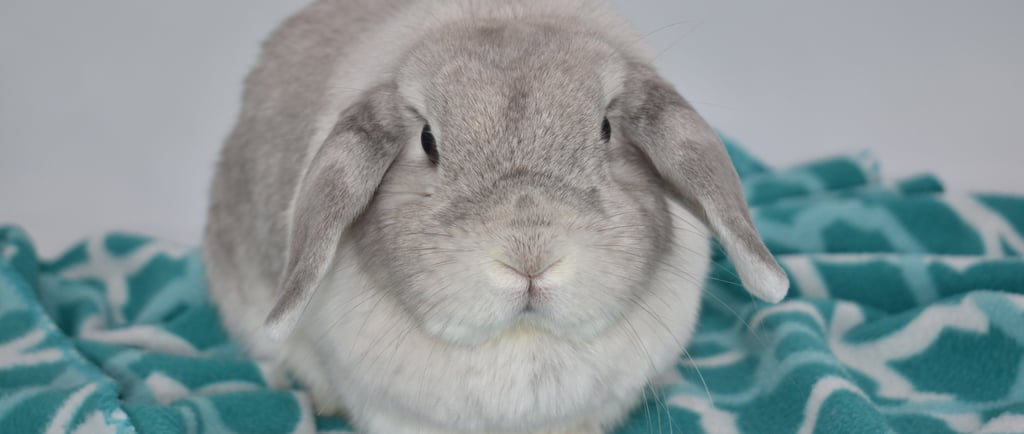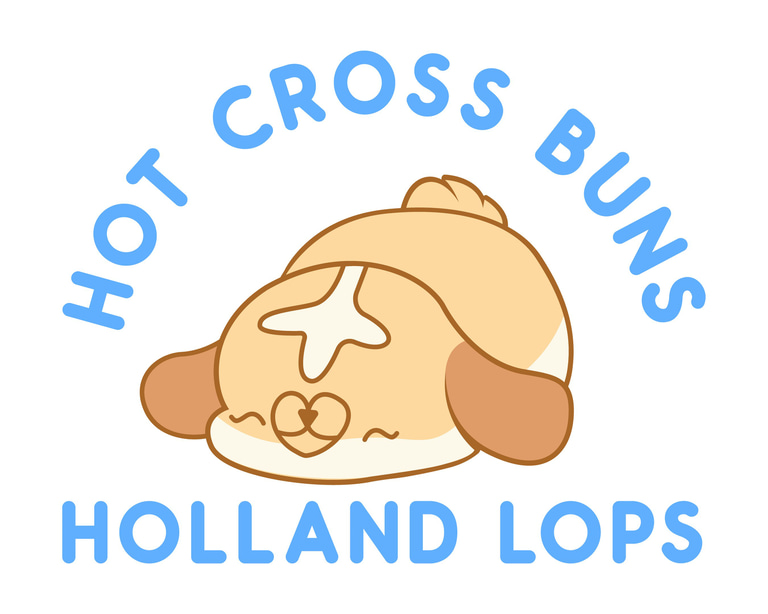Hidden Benefits of Adopting an Older Rabbit
While they may be past the baby-cute stage of life, adopting an older rabbit has many benefits...for the right people.
Amy J.
9/10/20253 min read


Many people contact a rescue or rabbitry in their search for the baby rabbit of their dreams. Occasionally, an older already spayed/neutered rabbit ends up winning their hearts and a place in their homes. When most people picture bringing home a bunny, they envision a tiny ball of fluff. Oftentimes, the best rabbit for some families may actually be past the baby stage. What may be lost in time with a baby can often be regained in peace of mind and reduced stress.
There are many hidden benefits to adopting an older rabbit.
Practical perks:
You don't have the stress and worry of seeing your rabbit go through spaying/neutering and watching over him/her during recuperation time. Although rabbits going under anesthesia has gotten much safer with knowledgeable veterinarians, there is always a risk. By adopting an older rabbit, the risk of something going wrong during spaying/neutering has been removed.
Already altered rabbits will not have the hormonal issues that a younger rabbit approaching reproductive age may develop, like destructive chewing, digging, nipping, lunging, and spraying.
Adopting an older, already spayed/neutered rabbit is often more affordable. These procedures have gotten quite expensive over the past few years (a recent client told us that she was quoted over $850 for a bunny spay) so adopting an altered rabbit is a cost-conscious choice.
Many spayed/neutered rabbits are already well on the way to being fully litter box trained.
The full adult size of the rabbit is known, so purchasing multiple carriers or litter boxes in different sizes to accommodate growth is not necessary.
Bonding a pair is faster and easier with an already altered rabbit. It's not necessary to wait for a baby rabbit to reach maturity, have the bunny altered, and then wait for the baby to recuperate and hormone levels to subside before beginning the bonding process.
Emotional rewards:
Older rabbits are more predictable in temperament and behavior, without the worrying hormonal surges. They tend to be calmer and more mellow at this stage in life.
They typically enjoy interaction with people in a steadier manner, and learn to love routines that show they are important member of the family. They often crave affection and interaction. Our waiting doe Ivy has always been a very timid, reserved girl, but she has learned to "hug" us when we hold her in our laps, She stands on her hind legs and stretches to tuck her head up under our chins. She feels safe and quickly begins to relax while we pet her gently.
They are wonderful companions and excellent listeners, once patient and loving trust has been established.
Lifestyle fit:
Already altered rabbits should be less likely to nip/bite children who are learning how to interact with rabbits. Although supervision is always needed while children play with rabbits, an older bunny is more likely to hop away or thump if displeased with a particular action.
An adult rabbit's sturdier size can be an advantage in multi-pet households. A fully-grown rabbit is less likely to be mistaken as a dog or cat toy, and has the ability to assert itself if needed. With careful introductions, most pets adjust well; nevertheless, the adult rabbit's size does offer a certain amount of peace of mind.
Older rabbits are wiser about their physical limitations and are less prone to tumbling down the stairs or finding themselves in precarious positions. Bunny-proofing for cords, toxic plants, and other tasty chewable items is still essential, but baby bunny recklessness is reduced.
Some families may be aware that their lifestyle is going to change in the coming years and may not have the ability to commit to caring for a rabbit for 8-12 years, but can lovingly meet the needs of an older rabbit for a shorter period of time.
Compassionate choice:
It feels wonderful to build a friendship with an older rabbit who has been passed over again and again because she is past the "cute" baby stage.
Adopting older pets teaches children that animals of all ages are deserving of love, kindness, and respect.
Choosing an older rabbit gives it the opportunity to know the love and affection of having a family of his/her own, offering a second chance at happiness and to experience a whole new life and world.
Adopting an older, already spayed/neutered rabbit can be a win-win in terms of practicality, reaping rewards, and heart-felt compassion. If you're considering adding a rabbit to your family, please don't overlook the older ones. The right Bun may already be waiting for you...ready to hop into a special place in your heart.
